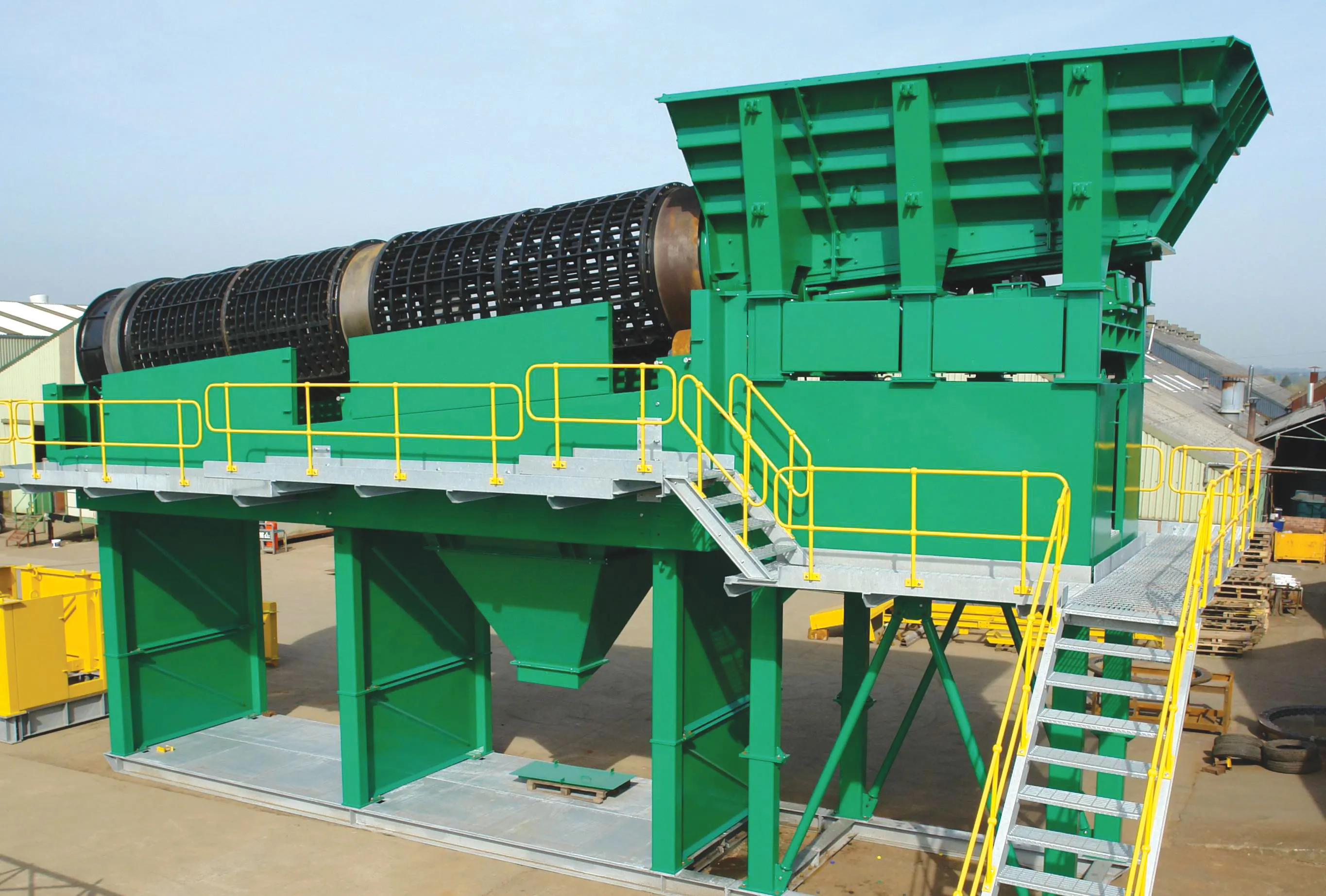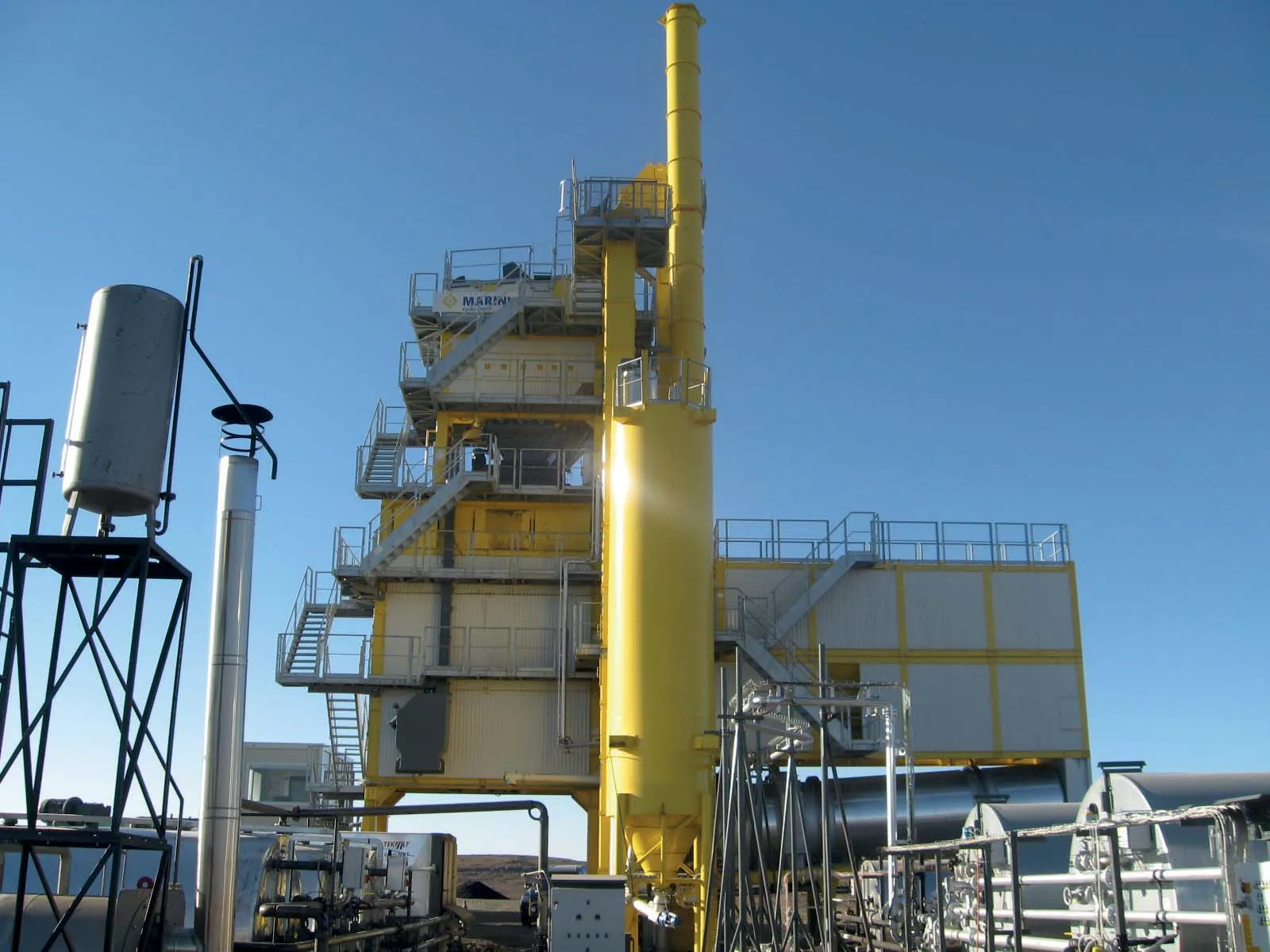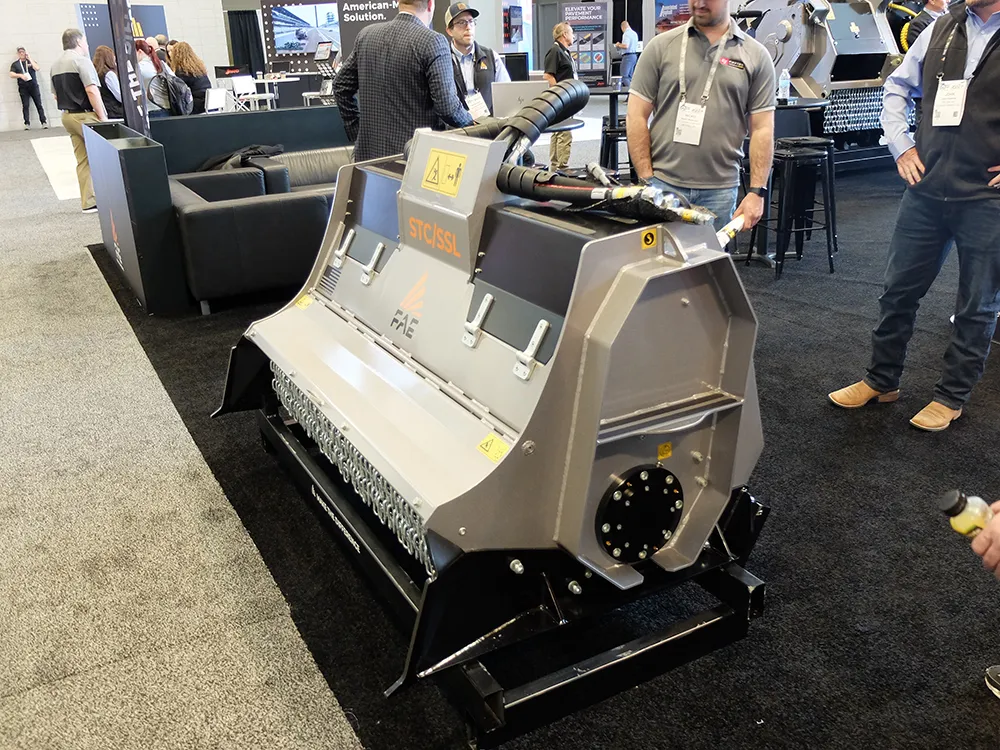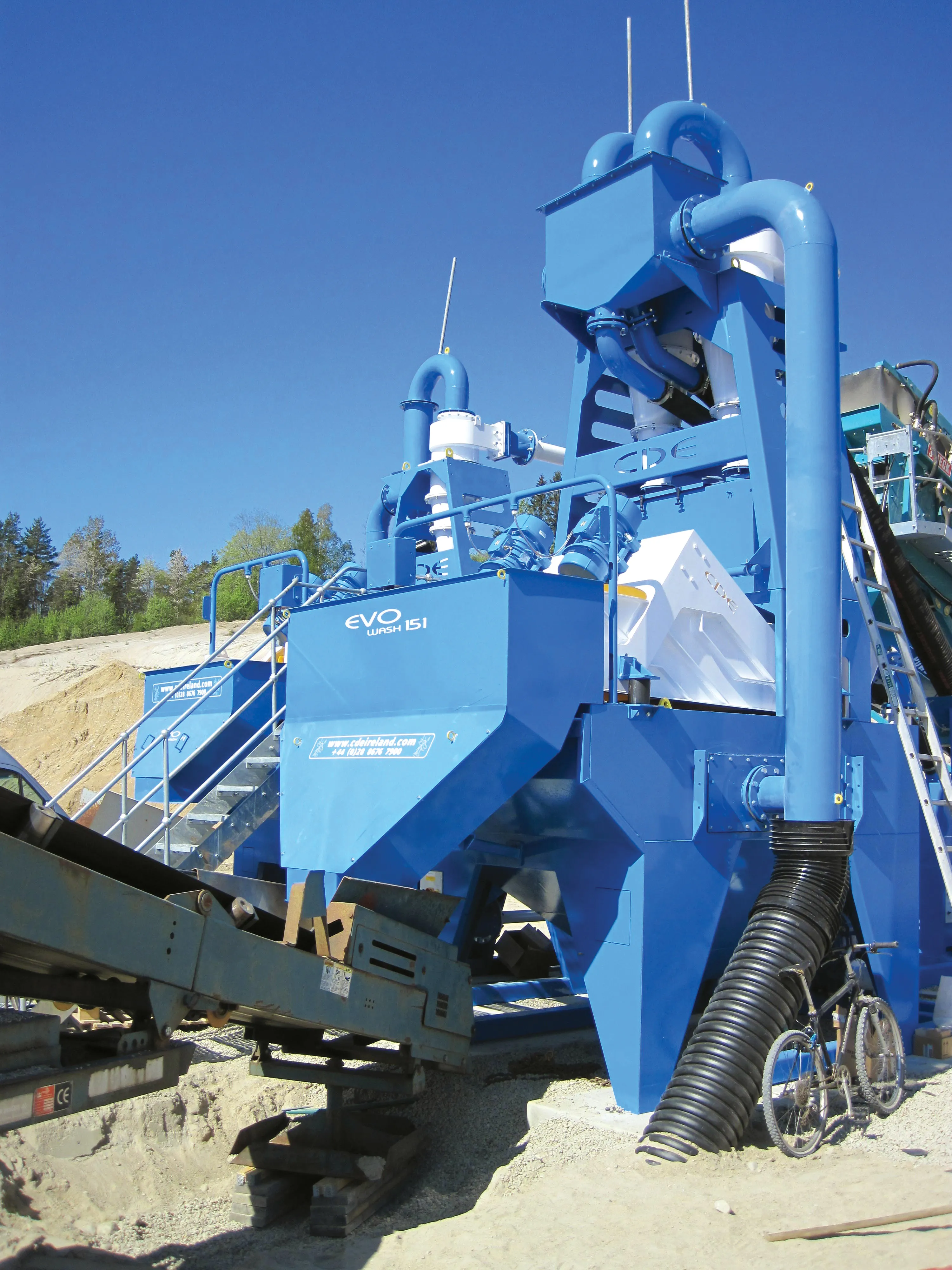Cleaning the crushed and screened products can boost quality and revenue. Aggregate Processing Solutions has developed a novel washing system aimed at the quarrying sector. The APS-100AT has been developed after almost five years of research and development and is said to be an innovative multi-component material washing system, featuring a highly efficient, heavy duty linear multi-deck screen.
February 22, 2012
Read time: 4 mins

RSSCleaning the crushed and screened products can boost quality and revenue. 3000 Aggregate Processing Solutions has developed a novel washing system aimed at the quarrying sector. The APS-100AT has been developed after almost five years of research and development and is said to be an innovative multi-component material washing system, featuring a highly efficient, heavy duty linear multi-deck screen. This is equipped with Atri-Jet technology, developed by the firm to help remove fines.
The adjustable Atri-Jet system is said to clean the final products efficiently. This is supported by a TRIO Course Material Washer, which scrubs to dissolve clays and separates lightweight materials. The entire plant can be delivered to site on two trucks and commissioned and ready to operate in just two hours. Designed to fit a small footprint, 12m x 2.9m, the system is compact and also efficient as it uses just 40% of the water of previously available systems.
Other features include a self powered capability, with an on-board generator and PLC control, which is pre-wired with an onboard control panel. Meanwhile the firm says that maintenance access is easy to all components while an on-board lifting beam aids wear part replacement.
3003 Stelex Construction Equipment in the UK is supplying two heavy duty type 182 Hercules machines for two customers in southern Africa, to improve cement production efficiency. The feed hopper is made of abrasive resistant steel and can accommodate a load of 100tonnes.
A variable speed-reciprocating tray supported on rollers beneath the hopper feeds material into the barrel at a pre-programmed rate. The 1.8m diameter barrel is made from high-grade steel bars welded to form segments, which are bolted together. The barrel is carried on four steel rollers, two of which are driven by heavy duty, variable speed, hydraulic motors, which allows the barrel speed to match to the optimum material feed rate.
Dirt or clay in the feed is discharged through the barrel segments while clean rock travels down to be graded by the different apertures in the segments. Oversize, which can be lump sizes of 900mm, is discharged through the end of the barrel of the 182 Hercules.
From Canadian specialist3004 W.S. Tyler comes the novel Hydro-Clean system, which can remove contamination while using just 25% of the water required by previously available washing systems according to the firm. The Hydro-Clean can handle a maximum feed material size of up to 150mm in its vertical drum and has high-pressure nozzles rotating at 90rpm, to spray up to 90% recycled water on the material with pressures up to 200bars. The washing unit removes silt and clay particles as small as 63microns from mineral mixtures. Due to its compact size and weight, overall operating and structural costs are considerably lower than with traditional washing systems according to the firm.
Dirty material is fed through the hopper to the vertical washing drum, where high-pressure nozzles mounted at the top rotate and spray the material with water. The water streams spread and wash the material, breaking up agglomerates and cleaning particles of stubborn material. The turbulence in the drum creates additional scrubbing and abrasive forces that boost the cleaning process as the material travels down the drum cylinder, resulting in a cleaner and higher value product.
During the cleaning process, the washed material works its way down the drum and exits onto a discharge conveyor that leads to a standard wash screen, which removes any remaining dirt or clay still on the stone as it fractionates the material. The resulting dirty water flows through polyurethane screen mesh installed in the sides of the washing drum and is collected by a waste water pipe, which sends the water to a treatment system for additional fine screening. There are four different sizes available with throughput capacities from 20-400tonnes/hour, depending on the application. Even the largest Hydro-Clean unit has a power requirement of just 225kW and this system is said to feature lower wear rates than conventional systems.RSS
The adjustable Atri-Jet system is said to clean the final products efficiently. This is supported by a TRIO Course Material Washer, which scrubs to dissolve clays and separates lightweight materials. The entire plant can be delivered to site on two trucks and commissioned and ready to operate in just two hours. Designed to fit a small footprint, 12m x 2.9m, the system is compact and also efficient as it uses just 40% of the water of previously available systems.
Other features include a self powered capability, with an on-board generator and PLC control, which is pre-wired with an onboard control panel. Meanwhile the firm says that maintenance access is easy to all components while an on-board lifting beam aids wear part replacement.
A variable speed-reciprocating tray supported on rollers beneath the hopper feeds material into the barrel at a pre-programmed rate. The 1.8m diameter barrel is made from high-grade steel bars welded to form segments, which are bolted together. The barrel is carried on four steel rollers, two of which are driven by heavy duty, variable speed, hydraulic motors, which allows the barrel speed to match to the optimum material feed rate.
Dirt or clay in the feed is discharged through the barrel segments while clean rock travels down to be graded by the different apertures in the segments. Oversize, which can be lump sizes of 900mm, is discharged through the end of the barrel of the 182 Hercules.
From Canadian specialist
Dirty material is fed through the hopper to the vertical washing drum, where high-pressure nozzles mounted at the top rotate and spray the material with water. The water streams spread and wash the material, breaking up agglomerates and cleaning particles of stubborn material. The turbulence in the drum creates additional scrubbing and abrasive forces that boost the cleaning process as the material travels down the drum cylinder, resulting in a cleaner and higher value product.
During the cleaning process, the washed material works its way down the drum and exits onto a discharge conveyor that leads to a standard wash screen, which removes any remaining dirt or clay still on the stone as it fractionates the material. The resulting dirty water flows through polyurethane screen mesh installed in the sides of the washing drum and is collected by a waste water pipe, which sends the water to a treatment system for additional fine screening. There are four different sizes available with throughput capacities from 20-400tonnes/hour, depending on the application. Even the largest Hydro-Clean unit has a power requirement of just 225kW and this system is said to feature lower wear rates than conventional systems.RSS









